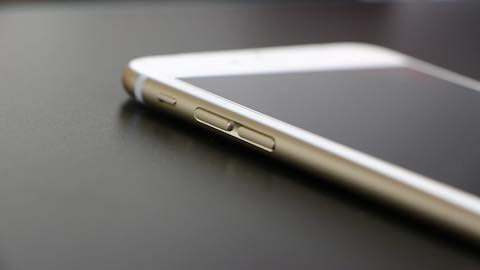- MENU
- HOME
- SEARCH
- WORLD
- MAIN
- AFRICA
- ASIA
- BALKANS
- EUROPE
- LATIN AMERICA
- MIDDLE EAST
- United Kingdom
- United States
- Argentina
- Australia
- Austria
- Benelux
- Brazil
- Canada
- China
- France
- Germany
- Greece
- Hungary
- India
- Indonesia
- Ireland
- Israel
- Italy
- Japan
- Korea
- Mexico
- New Zealand
- Pakistan
- Philippines
- Poland
- Russia
- South Africa
- Spain
- Taiwan
- Turkey
- USA
- BUSINESS
- WEALTH
- STOCKS
- TECH
- HEALTH
- LIFESTYLE
- ENTERTAINMENT
- SPORTS
- RSS
- iHaveNet.com: Technology

If your phone gets stolen, the loss isn't just the physical object; you also have to worry about what will happen to the sensitive data it contains. And, because your wireless network and personal data are only as secure as the weakest link in your security chain, your phone needs to be as secure as your laptop, if not more.
Security features that all iPhone users should take advantage of to ensure that their entire data network is secure
Ensuring the security of your iPhone is crucial to protect your personal information and privacy. Apple provides several built-in security features to help you safeguard your device and data. Here are some must-use iPhone security features:
Passcode or Face/Touch ID
Set a strong passcode for your device. A complex passcode provides an additional layer of protection.
Enable Face ID (for iPhone X and later) or Touch ID (for devices with Touch ID) for convenient and secure biometric authentication.
Automatic Updates
Keep your iPhone's operating system and apps up to date by enabling automatic updates. Updates often include security patches.
Find My iPhone
Enable "Find My iPhone" in the iCloud settings. This feature helps you locate your device if it's lost or stolen, remotely lock it, or erase its data.
Two-Factor Authentication (2FA)
Enable 2FA for your Apple ID. This adds an extra layer of security by requiring a verification code from another trusted device when logging in.
FaceTime and iMessage Security
Ensure that FaceTime and iMessage are secured with end-to-end encryption, which means only you and the recipient can read your messages or see your calls.
App Permissions
Review and manage app permissions in Settings > Privacy. Only grant necessary permissions to apps, and be cautious about apps requesting access to sensitive data.
App Store Downloads
Download apps only from the official App Store, as Apple reviews apps for security before making them available. Avoid sideloading apps from third-party sources.
App Privacy Labels
Pay attention to the privacy labels in the App Store, which provide information on how apps use your data. Make informed choices about the apps you install.
Strong and Unique Passwords
Use strong, unique passwords for your Apple ID and other online accounts. Consider using a password manager to generate and store complex passwords.
Touch/Face ID Lockout
Enable the "Erase Data" option in Settings > Face ID & Passcode (or Touch ID & Passcode). This feature erases all data on your device after ten failed authentication attempts.
Screen Time and Parental Controls
Use Screen Time settings to manage your device's usage and set restrictions for children's devices if needed.
Secure Backups
Enable encrypted backups in iCloud or use local iTunes/Finder backups with encryption to protect your data.
Safari Privacy Features
Enable "Prevent Cross-Site Tracking" and "Block All Cookies" in Safari settings for enhanced online privacy.
Auto-Lock and Auto-Wipe
Configure your device to auto-lock after a short period of inactivity, and set up auto-wipe (Erase Data) after multiple incorrect passcode attempts.
Siri Privacy
Review Siri settings to control data sharing and privacy features related to voice commands.
Security Code AutoFill
Disable this feature in Safari settings if you don't want your device to automatically fill in SMS two-factor authentication codes sent to you.
Advanced Protection
Consider using advanced security features like the Apple Configurator for added control and security if you have specific security needs.
Encrypt Your Data With a Longer Password
iOS 9 allows you not only to encrypt all of your data so that even Apple can't see it, but also to do it with a longer, alphanumeric password. The standard four-digit password makes your password one of just 10,000 possibilities. That might sound like a lot, but it's not to a hacker. On the other hand, a six-place alphanumeric password has more than 2.1 billion possible combinations. That's five orders of magnitude more security.
Allow Voice and Video iMessages to Expire
It's just a simple fact that the longer data is allowed to sit around, the more likely it is to become compromised. So it's good that iOS 9 allows you to let voice and video iMessages expire in their time. That means you don't have to monitor or clean out your old messages. iOS 9 is going to do it for you.
Change Your Default Wi-Fi Hotspot Password
iPhones also double as Wi-Fi hotspots for those times when you're getting a signal on your phone but don't have any Wi-Fi. The problem is the default password, which any hacker worth his salt probably already has. Change that immediately or you might be looking at a serious security situation.
Disable Preview Notifications
It's probably not smart to let every text message and alert show up on your lock screen. Fortunately, you can disable this so that you get only generic notifications like "New Text Message." That's a good thing for just about any situation.
Regularly reviewing and updating your device's security settings and being cautious about the apps and services you use will help you maintain a high level of security and privacy on your iPhone.
Article: Copyright © iHaveNet